Yan
Joann
Modeling Household Online Shopping Demand in the U.S.: A Machine Learning Approach and Comparative Investigation between 2009 and 2017
Jan 11, 2021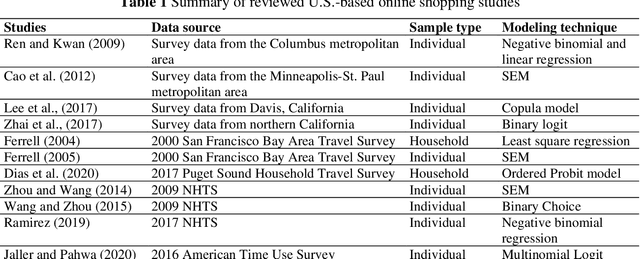
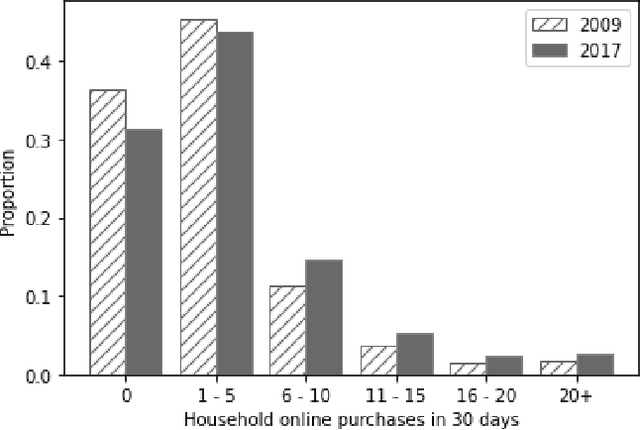
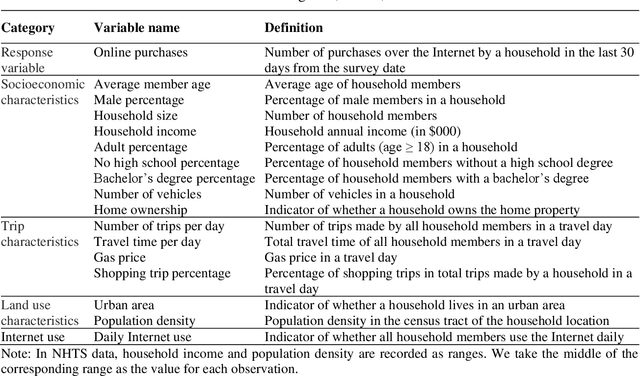
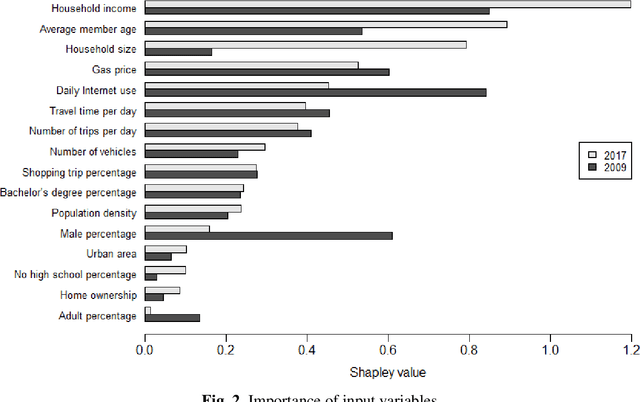
Abstract:Despite the rapid growth of online shopping and research interest in the relationship between online and in-store shopping, national-level modeling and investigation of the demand for online shopping with a prediction focus remain limited in the literature. This paper differs from prior work and leverages two recent releases of the U.S. National Household Travel Survey (NHTS) data for 2009 and 2017 to develop machine learning (ML) models, specifically gradient boosting machine (GBM), for predicting household-level online shopping purchases. The NHTS data allow for not only conducting nationwide investigation but also at the level of households, which is more appropriate than at the individual level given the connected consumption and shopping needs of members in a household. We follow a systematic procedure for model development including employing Recursive Feature Elimination algorithm to select input variables (features) in order to reduce the risk of model overfitting and increase model explainability. Extensive post-modeling investigation is conducted in a comparative manner between 2009 and 2017, including quantifying the importance of each input variable in predicting online shopping demand, and characterizing value-dependent relationships between demand and the input variables. In doing so, two latest advances in machine learning techniques, namely Shapley value-based feature importance and Accumulated Local Effects plots, are adopted to overcome inherent drawbacks of the popular techniques in current ML modeling. The modeling and investigation are performed both at the national level and for three of the largest cities (New York, Los Angeles, and Houston). The models developed and insights gained can be used for online shopping-related freight demand generation and may also be considered for evaluating the potential impact of relevant policies on online shopping demand.
Spoiled for Choice? Personalized Recommendation for Healthcare Decisions: A Multi-Armed Bandit Approach
Sep 13, 2020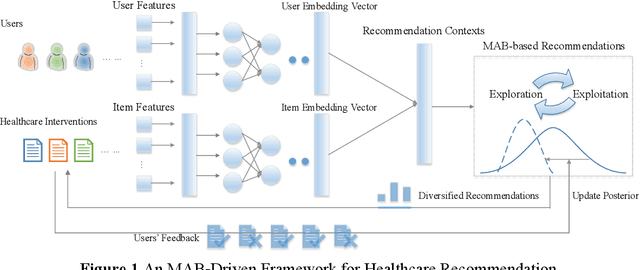
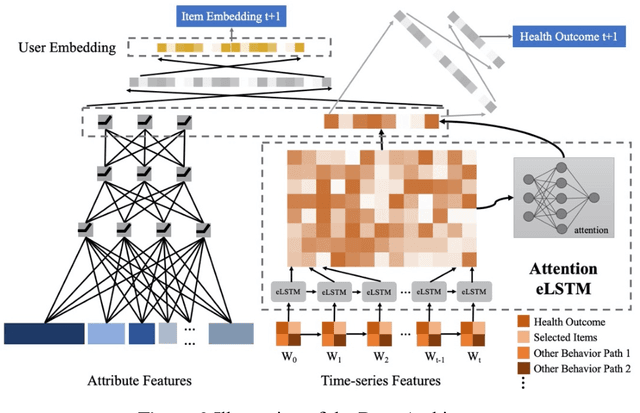
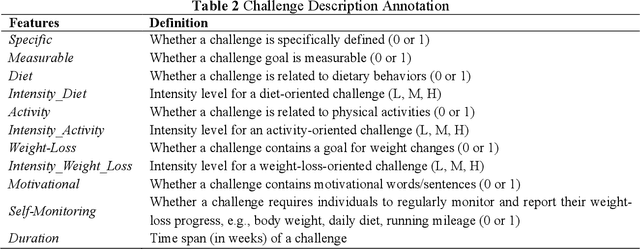
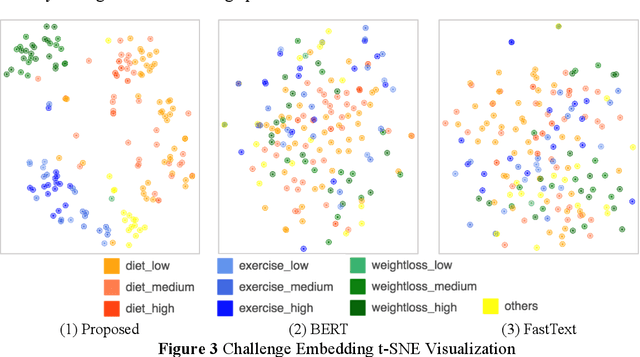
Abstract:Online healthcare communities provide users with various healthcare interventions to promote healthy behavior and improve adherence. When faced with too many intervention choices, however, individuals may find it difficult to decide which option to take, especially when they lack the experience or knowledge to evaluate different options. The choice overload issue may negatively affect users' engagement in health management. In this study, we take a design-science perspective to propose a recommendation framework that helps users to select healthcare interventions. Taking into account that users' health behaviors can be highly dynamic and diverse, we propose a multi-armed bandit (MAB)-driven recommendation framework, which enables us to adaptively learn users' preference variations while promoting recommendation diversity in the meantime. To better adapt an MAB to the healthcare context, we synthesize two innovative model components based on prominent health theories. The first component is a deep-learning-based feature engineering procedure, which is designed to learn crucial recommendation contexts in regard to users' sequential health histories, health-management experiences, preferences, and intrinsic attributes of healthcare interventions. The second component is a diversity constraint, which structurally diversifies recommendations in different dimensions to provide users with well-rounded support. We apply our approach to an online weight management context and evaluate it rigorously through a series of experiments. Our results demonstrate that each of the design components is effective and that our recommendation design outperforms a wide range of state-of-the-art recommendation systems. Our study contributes to the research on the application of business intelligence and has implications for multiple stakeholders, including online healthcare platforms, policymakers, and users.
 Add to Chrome
Add to Chrome Add to Firefox
Add to Firefox Add to Edge
Add to Edge